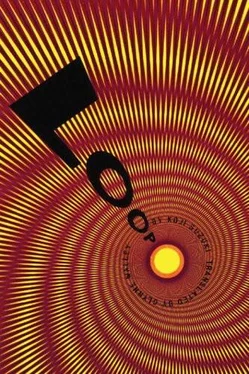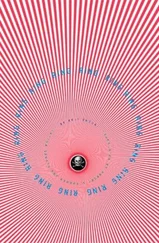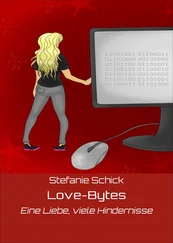Kaoru came up behind her and spoke.
"Hey, Mom, when's Dad getting home?"
He hadn't intended to startle her, but there was no denying that his approach had been a little too silent, and his voice when he spoke a little too loud. Machiko jumped, her arms jerked, and she knocked over a dish that she'd placed at the edge of the sink.
"Hey, don't scare me like that!"
She caught her breath and turned around, hands to her breast.
"Sorry," Kaoru said. He often accidentally took his mother unawares like this.
"How long have you been standing there, Kaoru?"
"Just a few seconds."
"You know Mom's jumpy. You shouldn't startle me like that," she scolded.
"I'm sorry. I didn't mean to do it."
"Really? Well, you did it all the same."
"Didn't you notice? I was staring at your back, just for a few seconds."
"Now, why should I notice that? I don't have eyes in the back of my head, you know."
"I know, but, I…" He trailed off. What he wanted to say was, People can feel someone staring at them even if they don't turn around. But he knew that would scare his mother even more.
So he went back to his original question. "When's Dad getting home?" Of course, he knew it was pointless to ask: not once had his mother ever known when his father was coming home.
"He'll probably be late again today, I imagine." She gave her usual vague answer, glancing at the clock in the living room.
"Late again?"
Kaoru sounded disappointed, and Machiko said, "You know your dad's really busy at work these days. He's just getting started on a new project, remember?" She tried to take his side. He got home late every night, but never did she betray the slightest hint of discontent.
"Maybe I'll wait up for him."
After she'd finished putting away the dishes, Machiko went over to her son, wiping her hands with the dishcloth.
"Do you have something you want to ask him again?"
"Yeah."
"About his work?"
"Unh-uh."
"How about I ask him for you?"
"Huh?" Kaoru couldn't stop himself from laughing.
"Knock that off! You know, I'm not as dumb as you think I am. I did go to grad school, you know."
"I know that. But… you studied English lit, right?"
Machiko had indeed belonged to a department of English language and literature at the university, but to be exact her focus had been on American culture, rather than English literature. She'd been particularly knowledgeable about Native American traditions; even now she kept up on it, reading in her free time.
"Never mind that, just tell me. I want to hear what you have to say."
Still holding the dishcloth, Machiko ushered her son into the living room. Kaoru thought it was a little odd: why should she suddenly take an interest tonight, of all nights? Why was she reacting differently?
"Wait a minute, then." Kaoru went to his bedroom and came back with two pieces of paper. He sat down on the sofa next to his mother.
As she glanced at the pages in Kaoru's hand, Machiko said, "What's this? I hope these aren't full of difficult figures again!" When it came to mathematical questions, she knew it was time for her to admit defeat.
"It's nothing hard like that this time."
He handed her the two pages, face up, and she looked at them in turn. A map of the world was printed on each one.
"Well, this is a change. You're studying geography now?"
Geography was one of her strong suits, particularly North American. She was confident that in this field, at least, she knew more than her son.
"Nope. Gravitational anomalies."
"What?" It looked like she'd be out of her league after all. A faint look of despair crept into her eyes.
Kaoru leaned forward and began to explain how these maps showed in one glance the earth's gravitational anomalies.
"Okay, there's a small difference between the values you get from the gravity equation and those you get by correcting gravitation acceleration for the surface of the geoid. Here we have those differences written on maps in terms of positive or negative numbers."
The pages were numbered, "1" and "2". On the first map were drawn what seemed like an endless series of contour lines representing gravitational anomalies, and each line was labelled with a number accompanied by a plus sign or a minus sign. The contour lines looked just like the ones found in any normal atlas, where positive numbers equalled heights above sea level and negative numbers depths below sea level.
But in this case, the lines showed the distribution of gravitational anomalies. In this case, the greater the positive number, the stronger the gravitational force, and the greater the negative number, the weaker the gravitational force at that particular location. The unit was the milligal (mgal). The map was shaded, too: the whiter areas corresponded to positive gravitational anomalies, while the darker areas corresponded to negative ones. It was set up so that everything could be understood at a glance.
Machiko stared long and hard at the gravitational anomaly distribution map she held in her hands, and then looked up and said, "Alright, I give up. What is a gravitational anomaly?" She'd long since given up trying to fake knowledge in front of her son.
"Mom, surely you don't think that the earth's gravity is the same everywhere, do you?"
"I haven't thought about it once since the day I was born, to be honest."
"Well, it's not. It varies from place to place."
"So what you're saying is that on this map, the bigger the positive number, the stronger the force of gravity, and the bigger the negative number, the weaker, right?"
"Uh-huh, that's right. See, the matter that makes up the earth's interior doesn't have a uniform mass. Think of it like this: if a place has a negative gravitational anomaly, it means that the geological material below it has less mass. In general, the higher the latitude, the stronger the force of gravity."
"And what's that piece of paper?"
Machiko pointed to the page marked "2". This, too, was a map of the world, but without the complex contour lines: instead it was marked with dozens of black dots.
"These are longevity zones."
"Longevity zones? You mean places where people tend to live longer?"
First a map of gravitational anomalies, and now a map of longevity zones-she was growing more confused by the minute.
"Right. Places whose residents clearly live longer than people living in other areas. This map shows how many of these spots there are in the world," Kaoru said, indicating the black dots on the map. Four of them were actually marked with double circles. The Caucasus region on the shores of the Black Sea, the Samejima Islands of Japan, the area of Kashmir at the foot of the Karakoram Mountains, and the southern part of Ecuador. All had areas famous for the longevity of their inhabitants.
Kaoru seemed to think the second map needed no further explanation. Machiko, though, was looking at it for the first time. She urged him on.
"So?" The real question now was, of course, what the two maps had to do with each other.
"Put one on top of the other."
Machiko obeyed. They were the same size, so it was easily done.
"Now hold them up to the light." Kaoru pointed to the living room chandelier.
Machiko raised them slowly, trying to keep the pages aligned. Now the black dots of the one were showing up in the midst of the contour lines of the other.
"Get it?"
Machiko didn't know what she was supposed to get.
"Stop putting on airs. Tell me what I'm supposed to see."
"Well, look-the longevity zones correspond perfectly to the low-gravity areas, don't they?"
Machiko stood up and brought the pages closer to the light. It was true: the black dots representing longevity zones only showed up in places demarcated on the first map by low-gravity lines. Very low gravity.
Читать дальше
Конец ознакомительного отрывка
Купить книгу






![Yuriy Ktitorov - Sasha [Love]. Part 1](/books/459553/yuriy-ktitorov-sasha-love-part-1-thumb.webp)





